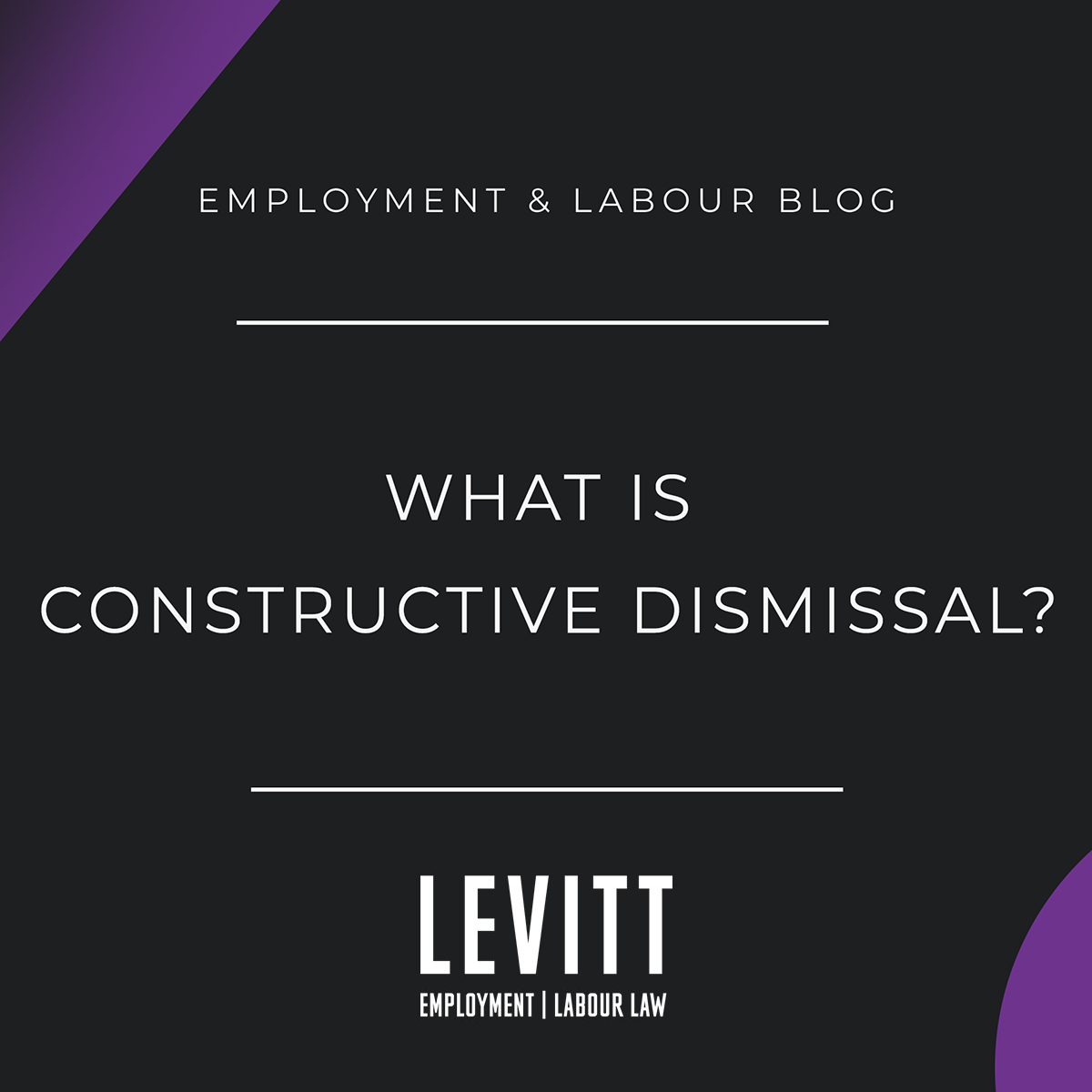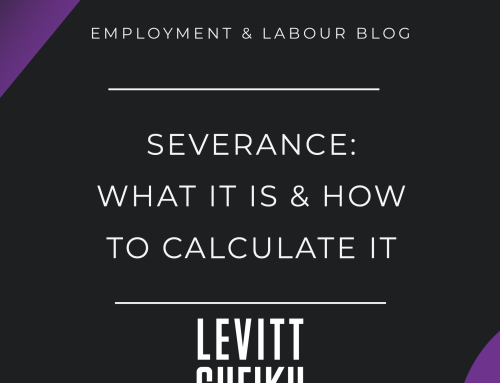Constructive dismissal is a type of wrongful dismissal where the employer has not directly terminated the employee, but instead the employer has failed to comply with the employment contract in a major respect. This could mean changing a term without employee acceptance or threatening to do so, therefore, pushing the employee to quit.
What makes a constructive dismissal different than a resignation is that in a situation of constructive dismissal, the employer has fundamentally changed or breached the employee contract and the employee treats this as having their employment contract terminated. In other words, the employee was forced to quit based on the employer’s fundamental change and the employer never said the words “you are fired”.
Constructive dismissal cases can be complicated and therefore it is important to call our firm as soon as you believe you have been constructively dismissed.
Constructive Dismissal Ontario
In Ontario, constructive dismissal is based on the doctrine of repudiation. A repudiation happens when a party to a contract (here, the employer) commits a serious breach of contract or indicates an intention to do so. The innocent party (here, the employee) can treat the employment contract as being terminated, which entitles the employee to damages for any loss resulting in the end of the employment contract.
A distinguishing factor in a constructive dismissal case is the employee must quit or sue for constructive dismissal to show they have accepted the employer’s repudiation of the employment contract. This is not to be confused with “accepting” the change, but rather, that the employment contract is terminated by that change.
By its very nature, a constructive dismissal case must be pursued in a timely matter and therefore it is important to contact our firm immediately. If you do not act fast, a Court can determine you have condoned the employer’s breach, which would result in your action for constructive dismissal being barred.
Some questions to consider if you are dealing with a constructive dismissal lawsuit are:
- What are the terms of your employment contract? (Some terms do not have to be expressly written and can be implied)
- Has the employer breached one of those terms?
- Is the breach fundamental?
- Did the employee “accept” the change and treat the employment contract as having been terminated (e.g. by quitting)
What Kind of Breach is Considered “Fundamental”?
Any unilateral change to an employee’s working conditions that violates a contractual term can result in a constructive dismissal case. With that being said, the court will consider if it was a fundamental change such as:
- Changes to Compensation and Benefits
- Changes in Job Assignment
- Reassignment to a Different Work Location
- Unpaid Suspensions and Temporary Layoffs
- Employee Harassment of a Poisoned Work Environment
Constructive Dismissal Ontario Settlements
Since a constructive dismissal results in the termination of the employee’s employment contract, the employee can recover damages based on the failure of the employer to provide proper contractual notice of the termination.
If you are currently in a situation where your employer has changed your employment contract without your consent, you should contact our firm to determine your next steps immediately. You may have grounds for a constructive dismissal case, and thus, your next steps are critical to your claim’s success.






